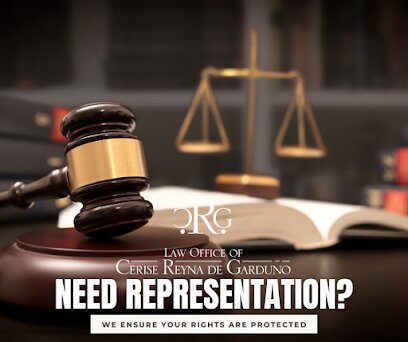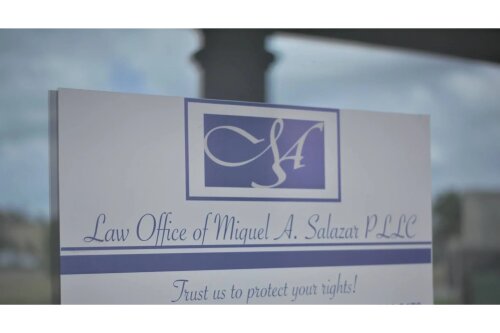Best Divorce & Separation Lawyers in Indiana
Share your needs with us, get contacted by law firms.
Free. Takes 2 min.
Free Guide to Hiring a Family Lawyer
Or refine your search by selecting a city:
List of the best lawyers in Indiana, United States
About Divorce & Separation Law in Indiana, United States
Divorce and separation laws in Indiana are designed to provide a legal process for married couples who wish to end their marriage or live apart. Also known as dissolution of marriage, the divorce process settles important matters like division of property, child custody, child support, and spousal maintenance. Indiana is a "no-fault" divorce state, which means couples do not need to prove wrongdoing by either spouse to be granted a divorce. The legal requirements and procedures apply whether the couple is pursuing a contested or uncontested divorce.
Why You May Need a Lawyer
Many people find the divorce and separation process both stressful and confusing. In Indiana, you may need a lawyer if:
- You and your spouse disagree about property division, child custody, parenting time, or financial support.
- Your marriage includes significant assets, complex finances, or business interests.
- There is a history of domestic violence or abuse.
- You are unfamiliar with Indiana's legal procedures and paperwork requirements.
- One spouse is trying to hide assets or is not cooperating in the process.
- You want to ensure the final settlement is fair and protects your rights and interests.
An experienced divorce lawyer can help guide you through the process, explain your rights, negotiate settlements, and represent you in court if needed.
Local Laws Overview
Indiana has its own set of laws that govern divorce and separation. Key aspects include:
- Residency Requirement: At least one spouse must have lived in Indiana for at least six months before filing for divorce, and in the filing county for at least three months.
- No-Fault Divorce: Most divorces are granted on the grounds of "irretrievable breakdown" of the marriage.
- Property Division: Indiana follows equitable distribution. The court divides marital property fairly, not always equally.
- Child Custody: Decisions are based on the child's best interest, and may include joint or sole custody arrangements.
- Child Support: Calculated using the Indiana Child Support Guidelines, taking into account income and needs of the child.
- Spousal Maintenance: May be awarded in limited circumstances such as disability or when a spouse needs to further their education or training.
- Waiting Period: There is a mandatory 60-day waiting period after filing before the divorce can be finalized.
Frequently Asked Questions
What are the residency requirements for filing for divorce in Indiana?
At least one spouse must have lived in Indiana for six months and in the county of filing for at least three months prior to filing for divorce.
Do I have to prove fault to get divorced in Indiana?
No, Indiana is a no-fault divorce state. Most divorces are granted on the grounds of "irretrievable breakdown" of the marriage.
How is property divided in an Indiana divorce?
Indiana uses equitable distribution, meaning marital property is divided fairly but not necessarily equally. Courts consider factors like contributions to the marriage, earning abilities, and the needs of each party.
How is child custody determined?
Indiana courts base custody decisions on the best interests of the child, evaluating factors like each parent's wishes, the child's wishes, relationships with parents and siblings, and the child's adjustment to home and community.
How is child support calculated?
Child support is calculated according to the Indiana Child Support Guidelines, considering the incomes of both parents, number of children, and certain expenses such as health insurance and childcare.
Can I get spousal maintenance in Indiana?
Spousal maintenance is limited and may be awarded if one spouse is disabled, is unable to support themselves, or needs additional education or training to become self-sufficient.
Can I get a legal separation instead of a divorce?
Yes, Indiana allows married couples to seek a legal separation for up to one year. This addresses similar issues as divorce but does not end the marriage.
What happens if one spouse does not agree to the divorce?
Both parties do not need to agree. As long as one spouse claims the marriage is irretrievably broken, the divorce can proceed.
Does Indiana require mediation for divorce?
Mediation may be required by the court in cases involving disputes over child custody, parenting time, or other contested issues, but it is not mandatory for all divorces.
How long does it take to get a divorce in Indiana?
There is a mandatory 60-day waiting period, but the total duration depends on whether the divorce is uncontested or contested. Complex cases can take several months or longer to resolve.
Additional Resources
If you need more information or assistance with divorce and separation in Indiana, consider reaching out to the following resources:
- Indiana Legal Help
- Indiana State Bar Association
- Indiana Supreme Court - Self Service Legal Center
- Local county clerk or family court offices
- Indiana Department of Child Services
- Legal Aid organizations operating in your county
Next Steps
If you are considering divorce or legal separation in Indiana, start by gathering important personal and financial documents. Consider consulting with a qualified family law attorney who understands Indiana's divorce and separation laws. An attorney can provide advice tailored to your situation, review and prepare legal documents, and represent your interests in negotiations or court proceedings. If finances are a concern, look into free or low-cost legal aid providers in your area. Taking early action can help protect your rights and make the process smoother.
Lawzana helps you find the best lawyers and law firms in Indiana through a curated and pre-screened list of qualified legal professionals. Our platform offers rankings and detailed profiles of attorneys and law firms, allowing you to compare based on practice areas, including Divorce & Separation, experience, and client feedback.
Each profile includes a description of the firm's areas of practice, client reviews, team members and partners, year of establishment, spoken languages, office locations, contact information, social media presence, and any published articles or resources. Most firms on our platform speak English and are experienced in both local and international legal matters.
Get a quote from top-rated law firms in Indiana, United States — quickly, securely, and without unnecessary hassle.
Disclaimer:
The information provided on this page is for general informational purposes only and does not constitute legal advice. While we strive to ensure the accuracy and relevance of the content, legal information may change over time, and interpretations of the law can vary. You should always consult with a qualified legal professional for advice specific to your situation.
We disclaim all liability for actions taken or not taken based on the content of this page. If you believe any information is incorrect or outdated, please contact us, and we will review and update it where appropriate.
Browse divorce & separation law firms by city in Indiana
Refine your search by selecting a city.















